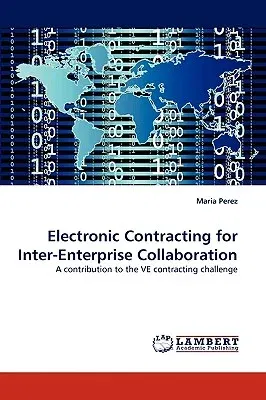Maria Perez
(Author)Electronic Contracting for Inter-Enterprise CollaborationPaperback, 4 June 2010

Qty
1
Turbo
Ships in 2 - 3 days
In Stock
Free Delivery
Cash on Delivery
15 Days
Free Returns
Secure Checkout
Print Length
72 pages
Language
English
Publisher
LAP Lambert Academic Publishing
Date Published
4 Jun 2010
ISBN-10
3838368622
ISBN-13
9783838368627
Description
Product Details
Author:
Book Format:
Paperback
Country of Origin:
US
Date Published:
4 June 2010
Dimensions:
22.86 x
15.24 x
0.43 cm
ISBN-10:
3838368622
ISBN-13:
9783838368627
Language:
English
Location:
Saarbrucken
Pages:
72
Publisher:
Weight:
117.93 gm

